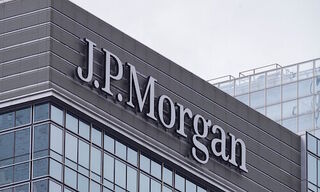The private bank has engaged in loan exposure of more than half a billion francs as part of its wealth management business. This now means that the bank must plan on reserves once more – Julius Baer is therefore facing an alarming level of risk.
Another new week begins with bad news for clients, employees and shareholders of Julius Baer. After the Zurich bank announced reserves of 70 million francs on a loan last Monday, it was revealed at the start of this week that the full single exposure amounts to a nominal 606 million francs – and that further value adjustments will be made where necessary.
Once more, Julius Baer did not disclose the name of the borrower. All we heard was that it was a «European conglomerate» and that the aggregate exposure to this client group was secured by several security packages in connection with commercial real estate and luxury retail.
Accurate Speculations
The evidence to suggest that the borrowers are businesses surrounding Signa Holding, founded by Austrian investor René Benko, is growing, however. The group has indicated financial difficulties and has already had to appoint a company doctor.
There had already been rumors in the media that the Zurich bank had around 600 million francs outstanding from Signa companies. Those speculations have now proven to be accurate. On Monday of this week, the share price of Julius Baer on the stock market decreased again slightly. Last Monday, the securities had lost 12 percent of their value within a day. In the weekly comparison, the shares are listed at around 17 percent lower.
From the Times of the Globus Deal?
In conjunction with the more recent communication, the private bank also shed some light into how the single exposure – more than half a billion francs after all – came about.
Julius Baer offers private debt as a structured financing solution exclusively as part of its «holistic wealth management service for super-rich private clients». Based on the evidence, flamboyant real estate entrepreneur Benko may have been a private banking client of Julius Baer at least since the Swiss department store chain Globus was sold to Signa and Thailand’s Central Group in 2020.
No Trivial Amount
In principle, it is not unusual for a private bank to grant loans as part of a comprehensive package. According to the announcement on Monday, the Baer bankers also accepted real estate as security against the millions. And yet, this reinforces the impression that financial professionals are sailing acutely close to the wind in terms of the risk.
After all, the 606 million francs are by far the largest single exposure in a private debt book of 1.5 billion francs. Taking up a whole 3.6 percent of the entire loan book of 41 billion francs, before Lombard credits and mortgages, this is certainly not a trivial amount.
Even More Big «Tickets»
As it later transpired, those in charge at Baer were also prepared to grant other big «tickets» as part of their private debt service. Their second-largest exposure totals 216 million, and the third-largest exposure amounts to 140 million francs. Neither of these two loans is connected to the real estate industry, according to the bank.
If we assume that the borrowers of the loan are indeed companies from the Benko empire, Julius Baer would really have gone out on a limb, even when compared to other, international banks. According to a compilation made by the «Bloomberg» agency, only the German banks Helaba, Nord LB and Bayern LB are presumed also to have hundreds of millions in loans granted to Signa companies. Unlike the Zurich-based private bank, however, these are regional banks that have corporate banking written into their DNA.
Under Review
The venture into corporate business is now a much-debated topic within Julius Baer: Chief Executive Officer at Julius Baer, Philipp Rickenbacher, announced in person that there would be a review of the private debt business and the framework in which it is managed.
Looking at the overall bank, there is a question of whether the institute could bite off more than it can chew in terms of its risk appetite in the future. The bank’s ambition in its target to double its managed wealth to 1,000 billion francs by 2030 remains unresolved. This is probably not possible without concessions to the rich client base, which might still require holistic wealth management for ultra-high-net-worth clients.



























